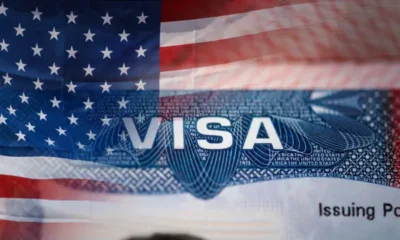Business
CBN Orders Banks to Refund Failed ATM Transactions Within 48 Hours
The Central Bank of Nigeria (CBN) has issued a draft guideline mandating banks to refund customers for failed ATM transactions within 48 hours.

- The Central Bank of Nigeria (CBN) has issued a draft guideline mandating banks to refund customers for failed ATM transactions within 48 hours, as part of sweeping reforms to enhance transparency, safety, and consumer protection in Nigeria’s banking system.
The Central Bank of Nigeria (CBN) has unveiled a new draft guideline on Automated Teller Machine (ATM) operations, setting strict timelines for the refund of failed transactions and tightening compliance standards for banks and payment operators.
According to the document titled “Exposure of the Draft Guidelines on the Operations of Automated Teller Machines (ATMs) in Nigeria” and signed by Musa Jimoh, Director of the CBN Payments System Policy Department, the apex bank said customers must now be refunded for failed interbank (not-on-us) transactions within 48 hours, while same-bank (on-us) failed transactions must be reversed instantly.
Where technical challenges prevent instant reversals, banks are mandated to complete manual reversals within 24 hours.

“This draft is part of the Bank’s continuous efforts to strengthen reliability, safety, and consumer confidence in the Nigerian payments ecosystem,” the CBN said.
The guideline is currently being exposed to stakeholders — including Deposit Money Banks (DMBs), Payment Service Providers (PSPs), and Independent ATM Deployers (IADs) — for a four-week public consultation before adoption.
Key Provisions in the Draft ATM Guidelines
1. Customer Refunds:
- Failed interbank transactions: refund within 48 hours.
- Failed same-bank transactions: instant reversal or manual refund within 24 hours.
- Banks must install systems capable of automatically initiating refunds without requiring customer complaints.
2. Transparency in Charges:
- All ATM transaction fees must be clearly displayed before processing.
- Every transaction, except balance inquiries, must generate a receipt or on-screen confirmation showing transaction ID, terminal number, and time.
- ATMs must display a working helpdesk contact for complaints.
3. Safety and Security:
Each ATM must be equipped with CCTV surveillance cameras covering card insertion and transaction activities — but not customer keystrokes — to ensure privacy.
Machines placed outdoors must be securely enclosed and bolted to prevent tampering or theft.

4. System Reliability and Downtime:
- ATM downtime must not exceed 72 consecutive hours.
- Operators must inform customers of outages, maintain online monitoring systems, and ensure steady cash availability.
- Use of unfit or torn naira notes in ATMs is prohibited.
DON’T MISS: BREAKING: FG Suspends Controversial 4% import Duty Levy
5. Enhanced Security Measures:
- ATM encryption keys must be changed at least once every year.
- Machines must be reconfigured to dispense cash before returning the card to reduce forgotten cash and card errors.
- Use of anti-skimming devices and backup power sources is now mandatory.
6. Customer Privacy and Accountability:
- ATM operators are required to insure the machines and cash within them.
- A national register of all ATMs must be maintained, including location and serial numbers.
- Regular inspection and maintenance logs are compulsory for compliance.

CBN’s Broader Reforms
The CBN said the new policy is part of its broader drive to improve electronic payment reliability, curb fraud, and boost public confidence in Nigeria’s financial system.
It also aligns with global banking standards set by institutions such as the Bank for International Settlements (BIS) and World Bank, which emphasize consumer protection and operational transparency in automated payment systems.
The apex bank explained that the draft addresses increasing customer complaints about transaction failures, card capture, delayed refunds, and frequent downtime of ATM services.
“Customers must not be made to suffer for failed transactions that occur due to system errors or network failures,” the circular stressed.
Civil society groups and consumer rights advocates have welcomed the move, describing it as “a bold step toward accountability and fairness” in Nigeria’s banking sector.
The CBN invited stakeholders and the public to review the draft and send comments to the Director, Payments System Policy Department, noting that feedback will help finalise a framework that balances technological innovation, consumer protection, and operational efficiency.
























You must be logged in to post a comment Login